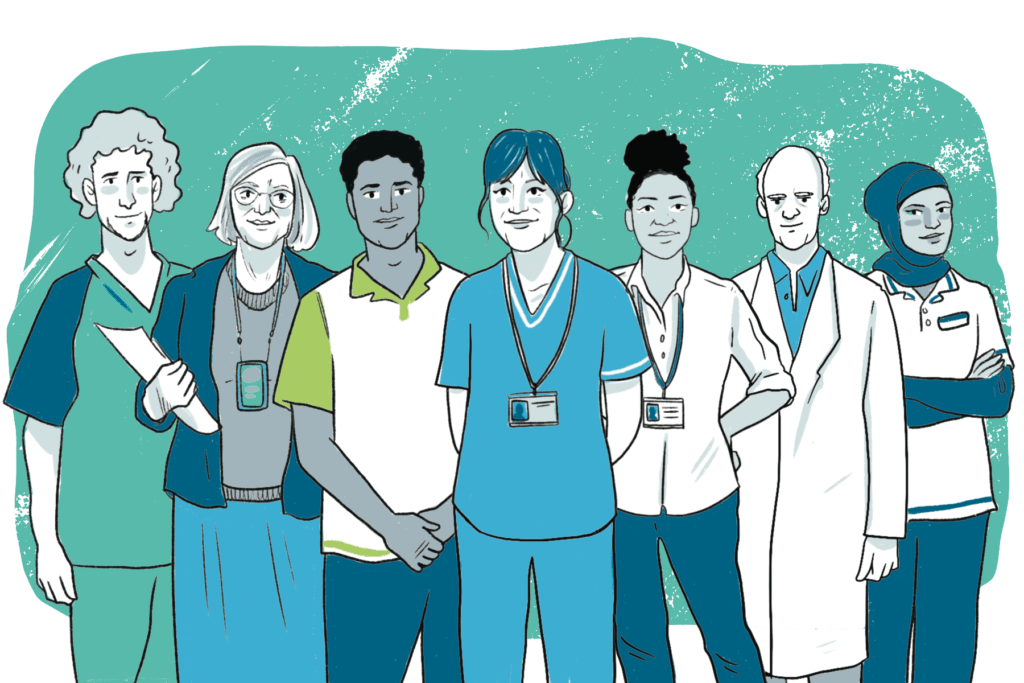That was then, this is now, isn’t it?
Factor 9, currently running at the Edinburgh fringe festival until 24 August, brings some of that back. The play is based on the testimonies of Bruce Norval and Robert Mackie, two “unfortunate individuals” with haemophilia who were, they claim, knowingly treated with contaminated blood by doctors engaged in research to identify treatments for HIV. Unlike many others within the cohort, they survived although Bruce lives with hepatitis C and Robert is co-infected with HIV and hepatitis C. Factor 9 tells their personal stories, and summarises their quest for justice from politicians and the medical establishment.
The play is emotionally wrenching to watch, leaving many in the audience in tears. Powerfully written and acted, Factor 9 inspires a range of emotions and poses serious questions for the way we view modern medicine.
It unfolds as a medical detective story and a massive amount of information is relayed to the audience through an impressive multimedia backdrop on which screens tell a range of back stories. Of experiments conducted in Nazi death camps by those who went on to work for pharmaceutical companies, and how the post-war “Nuremberg Code” was designed to ensure that no future medical research would be done without patients’ consent. Of how in the 1960s, individuals such as Dr Austin R Stough, a prison doctor at the Oklahoma State Penitentiary, satisfied the emerging plasma market among the major pharmaceutical companies by extracting plasma (“cash for blood”) from prisoners in Alabama and Arkansas, many of whom were infected with HIV, hepatitis and other communicable diseases. (It was only in 1994 that Arkansas became the last state to stop selling plasma extracted from prisoners.) And all the time, as the story progresses, a screen shows a rising count of those haemophiliacs who died.
Along the way, Bruce recalls his early haemophilia treatment as a boy in hospital, how he later trained as a nurse but how once his infection was known, he was no longer allowed to work. At a protest outside the Scottish Parliament, he meets Robert and hears how he and his relations were unknowingly being used for research in the Edinburgh Haemophiliac Cohort. He hears how Robert and his wife became medical detectives, reviewing histories and product batch numbers and how they became convinced that some members of that cohort had been given product known to carry infectious agents and were subsequently monitored.
From there, both men began campaigning for answers and justice.
Factor 9 was produced by the Dogstar Theatre Company, Inverness, and funded by a Kickstarter crowd funding project that Haemnet was happy to support. (Next month we too will be branching out into the arts – look out for “Bubble Wrap Boy” if you are at EHC in Dublin.) It deserves a wide audience.
Bruce says his purpose with this play was “to ensure that people understand the background to this story and learn from it”. David Cameron once famously said “sunlight is the best disinfectant.” A shame then that the Prime Minister declined the offer to attend the show in Edinburgh!
With the Penrose inquiry – set up to look into the matter by the Scottish Government – due to pronounce shortly, Bruce says there is a very real chance of legal actions being initiated against some of the leading clinicians involved, not least because the enquiry is taking a strong focus on statistics. That outcome will clearly hinge on the strength of any evidence to support deliberate infection, and the play itself talks about how much evidence has gone missing.
But maybe the real lesson of Factor 9 lies in the reminder of the need to be respectful when handling patient data, and for transparency in all aspects of research, no matter how rare the disorder. How many patients with bleeding disorders even today have their own data held and used in “cohort studies” about which they know nothing? And how often is “consent” granted by a parent updated once a child is able to make their own informed decisions?
Mike Holland founded Haemnet, SixVibe and The Journal of Haemophilia Practice. He is a medical writer, editor and event organiser.


